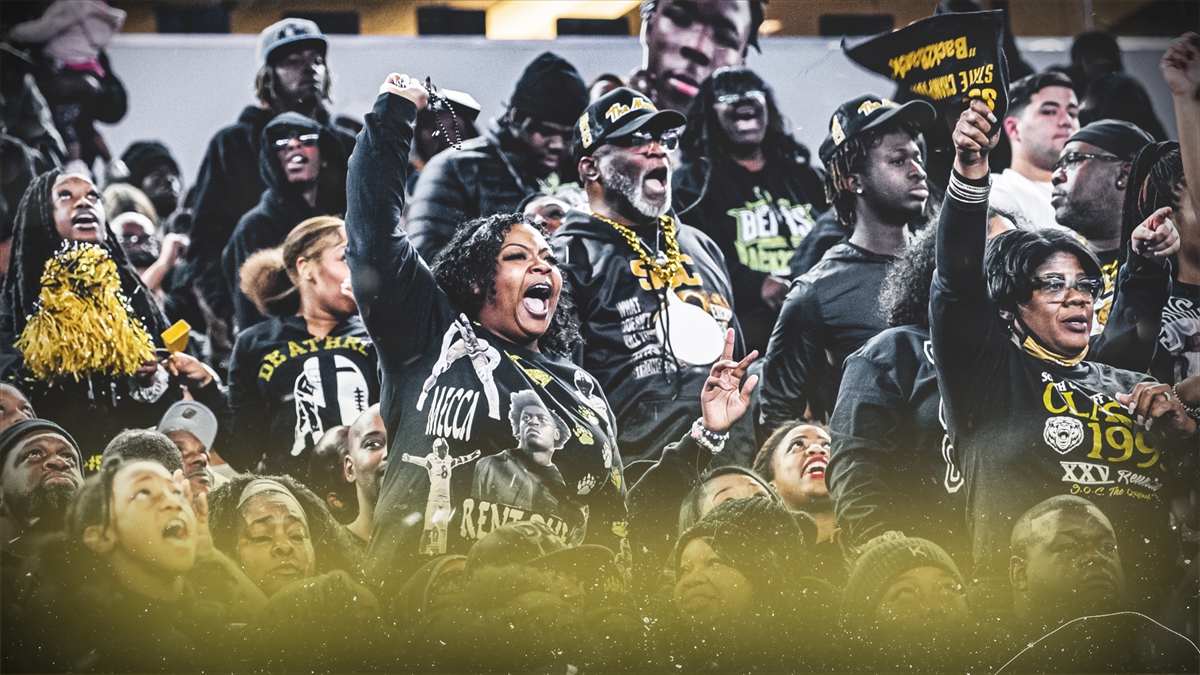This is the first in a series of three articles detailing the difficulties inner-city programs in Texas face in pursuit of on-field success.
The gold chains around Jason Todd’s neck shimmered in the December sun as he raised the state championship trophy above his head to raucous applause.
Thousands of Dallas community members sprawled across South Oak Cliff’s state-of-the-art turf practice field. They’d followed the victory parade a mile down South Marsalis Avenue to the high school, a sea of black and gold celebrating the Golden Bears’ 23-14 win over Liberty Hill in the 2021 Class 5A Division II State Championship. The SOC faithful clamored before the stage to witness Dallas ISD’s first trophy since 1958.
South Oak Cliff’s 15–1 season had energized a community that could’ve lost hope of reaching this mountaintop long ago. Now, they hung on every word the head coach who’d brought a football title to the inner city had to say.
“I’m going to speak my truth today,” Todd said. “A lot of people start coming on with the belief, and that belief starts spreading and filtering. But this dream started a long time ago.”
The switch flips. The swagger in Todd’s voice increased with each sentence. His entire football team surrounded him at the podium draped in gold medals, and they nodded their heads as the memories flooded back to them of all they had to endure before they could stand exalted.
“They’ve been up here working out when we didn’t have a school,” Todd said. “When we didn’t have a football field. When we rode the bus to practice, and they got home at 10 p.m. every night.”
The trophy, the medals and the parade honored a storybook season that had validated Dallas ISD.
But the dream started when Jason Todd was promoted from defensive coordinator in 2014 at a school where winning a state championship was impossible. South Oak Cliff’s campus at that time prevented it.
The turf field where the community now gathered to celebrate didn’t exist then, and neither did the weight room with a wall-length mirror and dumbbells. Some coaches must manufacture an underdog narrative to make their team believe no one thinks they can win. At South Oak Cliff, where football players went to school in a building without a roof and practiced on concrete when their field flooded at the first hint of rain, Todd’s players had all the needed evidence.
So, Todd spoke for all those men that had laid the foundation for what the state championship team earned. Beside him were the players who’d started their South Oak Cliff careers busing around the city because they had no weight room or field and finished it as the example of what an inner-city football team could accomplish when given the right resources.
Todd is much more subdued this morning, now 15 months removed from the emotions of that historic celebration. Of course, there’s no crowd to hype him up as he gets situated for a typical March day of off-season work. But the shock of winning a championship in the inner-city has long since worn off. In its place is an expectation to compete for them every year. He’s no longer the head coach of an underdog, but rather a machine that’s the first Dallas ISD program ever to win back-to-back state championships, outscored its district opponents 752-41 over two seasons and sent 12 members from the Class of 2023 to play Division I football.


